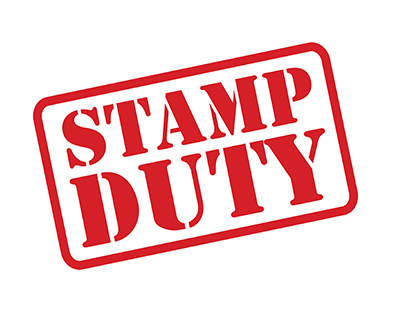
Rightmove and Knight Frank are today both calling for a series of government incentives to kick-start the market after the Coronavirus lockdown ends – and a stamp duty holiday is the number one suggestion from both companies.
In an unusual statement that stretches beyond its usual commentary on prices and demand, Rightmove says an obvious requirement in the immediate future is for the government support for businesses and individuals to remain in place for some time after the lockdown ends “in order to facilitate a quick recovery on many fronts.”
Specifically to help buyers and sellers it says a stamp duty holiday, an extension of Help To Buy, and some for of incentive to lenders to offer mortgages would be required. In addition, it says ;enders need to keep offering low deposit mortgages, which would help both the resale and new build sectors of the housing market.
“Owners need to be encouraged to move by reducing the costs of moving, and prospective buyers encouraged to buy by reducing the costs of funding their purchase. Given the government’s interventionist strategy to date that might include encouragement for lenders to resume business as usual with their full range of products” suggests Miles Shipside, Rightmove director and housing market analyst.
“We need to avoid a repeat of the post-credit-crunch mortgage famine which took from 2008 until the 2013 launch of Help to Buy to bring the mass market back into play with low-deposit mortgages” he adds.
Rightmove says lender should also “show forbearance to those in arrears and do not rush to repossess, leading to forced sales.”
These would, it fears, lead to reduced property prices, depressed activity and ultimately negative equity for many.
The portal says much depends on employment rates, as most buyers need appropriate employment to get a mortgage or to keep up repayments on their existing mortgage. “These are all-important factors influencing market sentiment, and it’s currently hard to predict how that will fluctuate in the months ahead” it admits.
Rightmove also says agents have a part to play. “It’s very important that the property industry tries to keep some activity simmering on the back-burner during the lockdown. Then after the end of the full lockdown, it needs a plan to overcome potential buyers’ and sellers’ new-found caution, and to cope with the need to maintain social distancing during visits for marketing, viewing, valuing and surveying” it states.
On the PropTech front it says some properties that are for sale or rent have pre-recorded videos available for would-be buyers or tenants to view online.
The portal admits it would be highly unusual to buy a property without a physical viewing, but virtual tours help them to work out which ones are worth viewing in person when stay-at-home restrictions are relaxed. Some sellers, guided by their estate agents who are unable to visit, are using mobile phones with their high-quality cameras to record their own videos.
To help with this creative approach, it says, the portal has released a new ‘online viewing’ label for agents to highlight properties for sale or to rent that have video tours.
“Some innovative agents with good knowledge of the local area are also using live stream video to offer virtual valuations to prospective sellers, in preparation for future marketing” it adds.
The portal says that with so few transactions its usual monthly asking price index is effectively redundant but for the record, it reports that the average asking price of the dwindling number of properties coming to market from March 8 to April 11 fell 0.2 per cent to £311,950, with the annual rate of increase from last April being 2.1 per cent.
Visits to Rightmove fell by around 40 per cent at the time of the lockdown announcement “but has now started to recover slowly across the last week.”
The buoyant start to the year before the lockdown saw the number of sales agreed in the year to March 23 up 11 per cent compared to the same period last year, which was the best start to a year since 2016.
It states that most sellers already on the market, and those with a sale already agreed, appear to be continuing with their plans to move once it has been deemed safe enough to do so.
Available stock for sale is down only marginally, by 2.6 per cent, “and since the lockdown the level of fall throughs is similar to what we would expect to see in a normal three week period” says Rightmove.
Meanwhile Knight Frank makes a similar set of demands on the government.
It forecasts that there will be 526,000 fewer home sales in 2020, 350,000 fewer mortgage approvals and overall some £4.4 billion lost in stamp duty accompanied by a loss of at least £1.6 billion in VAT for property-related expenditure not happening during the lockdown.
This fall in transaction volumes represents a reduction of 38 per cent on 2019 and is based on the assumption that the current lockdown will remain in place through April and May, with a gradual lifting through June.
This fall in activity will be multiplied across the economy. Knight Frank’s estimate is a loss of £7.9 billion in DIY and renovation spend and £395m on removals companies.
There will be a wider economic impact, including the loss of employment and general mobility.
“Moving house has a clear multiplier effect for the economy” says the agency’s head of London residential research, Tom Bill.
“Different-sized businesses in all areas of the economy feel these benefits, which is something the government will take into account when drawing up its post-lockdown stimulus plan.”
